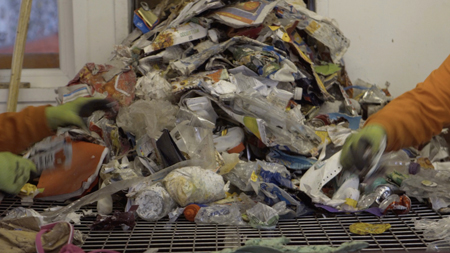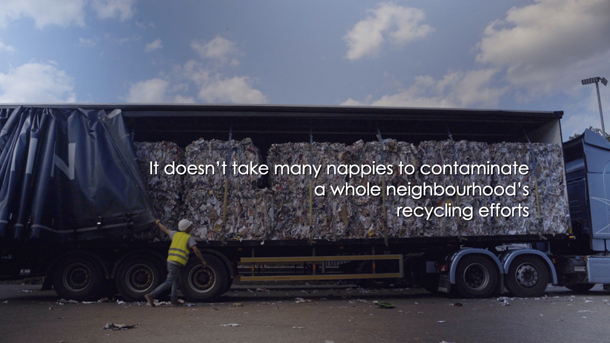Ashford council is working with its contractor Biffa on a campaign to reduce contamination in recycling, after items such as nappies and sanitary products were found in commingled recycling loads.
Ashford residents will find their bins ‘stickered’ if they present contaminated recycling for collection, after multiple loads of recycling were rejected in recent months for containing non-recyclable waste.

The campaign seeks to warn residents about the consequences of contaminating recycling
As part of the campaign – which begins on Monday (2 September) – waste collection crews and council officers will be placing stickers on bins which have “major” contamination. The sticker will inform the resident what the problem is and the bin will not be collected until the non-recyclables are removed.
Recycling tips will be published online in the lead up to the campaign and staff have been talking to residents at community events. Short videos and other advice will also be published on the council’s social media, so that people know how to avoid contamination before the stickering begins.
Cllr Andrew Buchanan – portfolio holder for environment and land management at Ashford borough council – said he wanted to assure residents that the campaign was not a form of punishment.
“It’s a way to ensure we are not forced to lose any additional good quality recycling from the majority of residents who are trying hard and doing the right thing.”
He explained: “Rather it’s a way to ensure we are not forced to lose any additional good quality recycling from the majority of residents who are trying hard and doing the right thing.
“We’re currently at a 56% recycling rate so most people are doing it correctly. We want to support those residents and their brilliant efforts.”
Rejected loads
The Kent local authority has revealed that in May and June four loads of recycling were rejected due to contamination at Biffa’s Edmonton Materials Recovery Facility (MRF) where recycling is separated and sorted.
Recycling is currently collected commingled via an alternate weekly collection system using a 240-litre green wheeled bin, or clear sacks, with accepted materials including paper and card, cartons, plastic bottles and pots, tubs and trays, metal cans, and glass bottles and jars accepted at the kerbside. Residual waste is collected using 180-litre wheeled bins, and the council offers a weekly food waste and fortnightly garden waste service from many homes.
The loads contained black sacks, food waste, nappies and sanitary waste, as well as other non-recyclable items.
Due to the contamination the loads were sent to the Allington Energy from Waste (EfW) where they were incinerated, rather than being recycled.
North London
Biffa has recently been involved in an anti-contamination campaign with the North London Waste Partnership in July, which also sends recyclable materials to the Edmonton MRF (see letsrecycle.com story).
The ‘Bin Your Nappy’ scheme urged North London parents to dispose of nappies in their residual waste bin and highlighted confusion over packaging labelling which led to some believing nappies were recyclable.
At the time of the launch, Steve Oulds – national commercial manager at Biffa – said that millions of nappies arrived at the Edmonton MRF every year and most people did not realise they had to be removed from the recycling by hand.
The post Ashford targets recycling contamination appeared first on letsrecycle.com.
Source: letsrecycle.com Waste Managment



